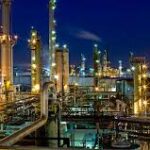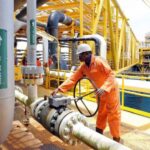In a crucial discussion regarding the state of Nigeria’s road infrastructure, the Minister of State for Works, Mohammad Bello Goronyo, raised alarms over the inadequate budget allocated to the Federal Emergency Roads Maintenance Agency (FERMA). During his presentation of FERMA’s 2025 budget to the Senate Committee, Goronyo emphasized the critical need for more financial support to maintain the country’s vast road network. With an ever-growing population and economy, Nigeria’s road infrastructure plays a pivotal role in ensuring efficient transportation, economic activities, and national development. However, the government’s current investment in maintaining this infrastructure remains alarmingly insufficient.
The Budgetary Shortfall
Goronyo began his address by revealing the discrepancies between the allocated and released funds for road maintenance. In the 2024 Appropriation Act, N103.3 billion was earmarked for FERMA’s operations. However, only N41.282 billion was actually released, and from this, N40.287 billion was spent throughout the year. This significant shortfall in funding, Goronyo pointed out, has severely hampered FERMA’s ability to adequately maintain roads that span all 36 states and the Federal Capital Territory, Abuja.
The Minister stressed that the current allocation and funding were far from sufficient to meet the needs of road infrastructure maintenance, considering the vast scope of the task at hand. He argued that if the federal government intends to address Nigeria’s road challenges effectively, substantial increases in FERMA’s budget must be considered.
The Case for a N64.88 Billion Budget
With the deteriorating condition of Nigeria’s road network in mind, Goronyo urged the Senate Committee to consider a proposed budget of N64.88 billion for FERMA in 2025. The breakdown of this proposed budget includes:
– N4.9 billion for personnel costs
– N33.468 billion for overhead costs
– N26.487 billion for capital expenses
Goronyo emphasized that this budget would be pivotal in maintaining major public roads, especially those in critical condition. The focus will be on key trunk A roads, which serve as the backbone of Nigeria’s transportation network and are vital for the movement of goods, services, and people across the country. Furthermore, he assured the Committee that the proposed budget aligns with President Bola Tinubu’s economic and development goals under the Renewed Hope Agenda, aiming to boost national growth and recovery through better infrastructure.
The Growing Funding Gap
Goronyo’s concerns are not without merit. An expert assessment conducted earlier highlighted a staggering need for over N700 billion to fully address the maintenance needs of Nigeria’s federal roads. This figure underscores the magnitude of the task ahead and the severe funding gap faced by FERMA. Despite this overwhelming estimate, the current allocations fall far short of what is required to adequately sustain road infrastructure nationwide.
Goronyo, in his appeal, emphasized that increased funding would not only address the immediate maintenance needs but also promote preventive maintenance practices. Such measures are essential in avoiding more costly repairs in the future, helping to ensure the long-term sustainability of Nigeria’s roads.
Senate Committee’s Response
Senator Babangida Husaini, the Chairman of the Senate Committee on FERMA, echoed Goronyo’s concerns. He expressed surprise and frustration over the low allocations for FERMA, particularly in the face of the growing challenges in road infrastructure. Senator Husaini raised an important point: Why is so much attention being paid to constructing new roads while existing ones—crucial to Nigeria’s development—continue to deteriorate without sufficient maintenance?
Husaini’s comments reflect the growing sentiment across the nation that road repairs and maintenance must be prioritized over the construction of new infrastructure. Nigerian citizens, especially those living in rural and underserved areas, are increasingly calling for the repair of existing roads to facilitate the movement of goods and services, improve safety, and enhance access to essential services.
“If we agree that roads are enablers of growth and development, then we must engage all stakeholders to find lasting solutions to this ongoing problem of inadequate funding,” Senator Husaini stated, reinforcing the need for comprehensive and sustainable funding strategies for road maintenance.
FERMA’s Challenges
During the meeting, FERMA’s Managing Director/CEO, Engr. Agbasi Chukwuemeka, provided a detailed update on the agency’s 2024 budget performance. He discussed several of the challenges that FERMA continues to face, which include:
– Inadequate funding: The most pressing issue that hinders the agency’s ability to perform its duties effectively.
– Aging infrastructure: Many of Nigeria’s roads are decades old and in desperate need of rehabilitation and maintenance.
– Vandalism and damage: The destruction and theft of road infrastructure have contributed to the deterioration of roads across the country.
– Climate change and adverse weather conditions: These factors have exacerbated the rate of road degradation, requiring more frequent repairs.
– The need for modernization: To keep up with global best practices in road management, FERMA must modernize its human resource capacities and incorporate advanced technologies into road maintenance strategies.
Despite these challenges, Chukwuemeka highlighted the agency’s successes in the past year, including the repair of numerous potholes, the restoration of bridges, and the creation of both direct and indirect jobs. However, he reiterated that FERMA’s potential to achieve even greater results remains hampered by the continuous shortfall in funding.
Conclusion: The Urgent Need for Action
The ongoing dialogue around the funding and management of Nigeria’s road infrastructure points to a crucial crossroads for the country. As the demand for better roads grows, especially in light of Nigeria’s expanding population and economic activity, the government must prioritize road maintenance as a vital component of national development. The allocation for FERMA must be significantly increased to ensure that existing roads are not neglected in favor of new projects.
The path forward requires a collective effort from the government, FERMA, and all relevant stakeholders to address the challenges of inadequate funding, aging infrastructure, and environmental impacts. With the proposed 2025 budget, the Ministry of Works is seeking not just financial support, but also a long-term vision for sustainable road maintenance in Nigeria.
As Goronyo and the Senate Committee have rightly pointed out, the nation’s development is inextricably linked to the condition of its roads. Investing in their maintenance today will yield long-term benefits for generations to come, fostering economic growth, improving safety, and enhancing the quality of life for all Nigerians.






